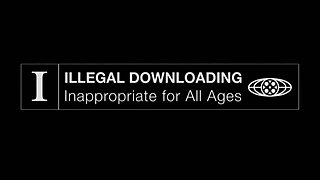| Formation | 2004 |
|---|---|
| Type | NGO |
| Purpose | Copyright protection lobbying |
Region served | Australia |
| Affiliations | Federation Against Copyright Theft |
| Website | www |
The Australian Screen Association (ASA) (formerly known as Australian Federation Against Copyright Theft) is an anti-piracy lobby group that was established in 2004. Its aim is to protect the film and television industry and retailers from what it claims are adverse impacts of copyright infringement in Australia. The Australian Screen Association is affiliated with the United Kingdom organisation, Federation Against Copyright Theft and the United States organisation MPAA.
ASA actively works to reduce camcorder recording of films screened in cinemas. It is also dedicated to educating people about its own view of copyright infringement.
In mid-2011, the Pirate Party Australia accused AFACT of intimidating ISPs after they threatened unspecified actions if they didn't engage with the organisation in talks on file-sharing. [1]
A leaked diplomatic cable revealed that AFACT was acting as the MPAA's Australian subcontractor and that the MPAA wanted to avoid the view that the court case was about Hollywood trying to bully an Australian ISP. [2]
The organisation comprises Walt Disney Studios Home Entertainment, 20th Century Fox, Paramount Pictures, Roadshow Entertainment, Sony Pictures, Universal Pictures, Warner Brothers and the MPAA. [3]
The organisation brought a lawsuit to the Federal Court of Australia against Australian internet service provider, iiNet, on 20 November 2008, alleging that iiNet had authorised copyright infringement on its network. AFACT had used Dtecnet, a company that tracks online copyright infringement to discover users sharing copyrighted content through BitTorrent. [4]
The Federal Court decision cleared iiNet on 4 February 2010. Justice Cowdroy found that "mere provision of access to internet is not the means to infringement".
AFACT lost its appeal to the Federal Court on 24 February 2011. [5] It was ordered to pay iiNet's legal bills.
AFACT lost a further appeal to the High Court of Australia on 20 April 2012. [6]

iiNet Limited is an Australian internet service provider and telecommunications company that sells NBN plans, 4G and 5G Home Wireless Internet and services on its ULTRA Broadband Cable, FTTB and VDSL2 networks. It also sells mobile phone sim-only plans using the Vodafone network.

The Bescherming Rechten Entertainment Industrie Nederland is an advocacy group with international links, based in the Netherlands, which represents the interests of the Dutch entertainment industry and is organised under the Dutch law through the legal form of stichting. It is notable for launching court proceedings against copyright infringement in the country and for engaging in lobbying in order to create legal precedents of global significance.

"You can click, but you can't hide" is an advertising campaign run jointly by several international associations, most notably the Motion Picture Association of America and the GVU, as part of the larger "Respect Copyrights" campaign against peer-to-peer file sharing of motion pictures. The associations have long alleged that Internet file sharing, or maintaining a file sharing tracker, network or search engine, constitutes copyright infringement since the practice hurts their revenues.

isoHunt was an online torrent files index and repository, where visitors could browse, search, download or upload torrents of various digital content of mostly entertainment nature. The website was taken down in October 2013 as a result of a legal action from the MPAA; by the end of October 2013 however, two sites with content presumably mirrored from isohunt.com were reported in media. One of them – isohunt.to – became a de facto replacement of the original site. It is not associated in any way with the old staff or owners of the site, and is to be understood as a separate continuation.
Megaupload Ltd was a Hong Kong–based online company established in 2005 that operated from 2005 to 2012 providing online services related to file storage and viewing.

"Piracy is theft" was a slogan used by UK non-profit organization FAST. It was first used in the 1980s and has since then been used by other similar organisations such as MPAA. It has also been used as a statement, although that has been challenged as being inaccurate.
Arts and media industry trade groups, such as the International Federation of the Phonographic Industry (IFPI) and Motion Picture Association of America (MPAA), strongly oppose and attempt to prevent copyright infringement through file sharing. The organizations particularly target the distribution of files via the Internet using peer-to-peer software. Efforts by trade groups to curb such infringement have been unsuccessful with chronic, widespread and rampant infringement continuing largely unabated.
File sharing is the practice of distributing or providing access to digital media, such as computer programs, multimedia, program files, documents or electronic books/magazines. It involves various legal aspects as it is often used to exchange data that is copyrighted or licensed.

The use of the BitTorrent protocol for the unauthorized sharing of copyrighted content generated a variety of novel legal issues. While the technology and related platforms are legal in many jurisdictions, law enforcement and prosecutorial agencies are attempting to address this avenue of copyright infringement. Notably, the use of BitTorrent in connection with copyrighted material may make the issuers of the BitTorrent file, link or metadata liable as an infringing party under some copyright laws. Similarly, the use of BitTorrent to procure illegal materials could potentially create liability for end users as an accomplice.
Censorship in Denmark has been prohibited since 1849 by the Constitution:
§ 77: Any person shall be at liberty to publish his ideas in print, in writing, and in speech, subject to his being held responsible in a court of law. Censorship and other preventive measures shall never again be introduced.

The Motion Picture Association (MPA) is an American trade association representing the five major film studios of the United States, the mini-major Amazon MGM Studios, as well as the video streaming services Netflix and Amazon Prime Video. Founded in 1922 as the Motion Picture Producers and Distributors of America (MPPDA) and known as the Motion Picture Association of America (MPAA) from 1945 until September 2019, its original goal was to ensure the viability of the American film industry. In addition, the MPA established guidelines for film content which resulted in the creation of the Motion Picture Production Code in 1930. This code, also known as the Hays Code, was replaced by a voluntary film rating system in 1968, which is managed by the Classification and Rating Administration (CARA).

Copyright infringement is the use of works protected by copyright without permission for a usage where such permission is required, thereby infringing certain exclusive rights granted to the copyright holder, such as the right to reproduce, distribute, display or perform the protected work, or to produce derivative works. The copyright holder is usually the work's creator, or a publisher or other business to whom copyright has been assigned. Copyright holders routinely invoke legal and technological measures to prevent and penalize copyright infringement.

Roadshow Films Pty Ltd & others v iiNet Ltd was a case in the Federal and High Courts of Australia between members of the Australian Federation Against Copyright Theft (AFACT) and other movie and television studios and iiNet, Australia's third-largest Internet service provider (ISP) at the time. The alliance of 34 companies unsuccessfully claimed that iiNet authorised primary copyright infringement by failing to take reasonable steps to prevent its customers from downloading and sharing infringing copies of films and television programs using BitTorrent.

The Digital Economy Act 2010 is an act of the Parliament of the United Kingdom. The act addresses media policy issues related to digital media, including copyright infringement, Internet domain names, Channel 4 media content, local radio and video games. Introduced to Parliament by Lord Mandelson on 20 November 2009, it received royal assent on 8 April 2010. It came into force two months later, with some exceptions: several sections – 5, 6, 7, 15, 16(1)and 30 to 32 – came into force immediately, whilst others required a statutory instrument before they would come into force. However some provisions have never come into force since the required statutory instruments were never passed by Parliament and considered to be "shelved" by 2014, and other sections were repealed.
File sharing in the United Kingdom relates to the distribution of digital media in that country. In 2010, there were over 18.3 million households connected to the Internet in the United Kingdom, with 63% of these having a broadband connection. There are also many public Internet access points such as public libraries and Internet cafes.

The Copyright Amendment Act 2011 is an Act of the Parliament of New Zealand which amends the Copyright Act 1994.
Copyright Alert System (CAS) was a voluntary industry effort to educate and penalize internet users who engage in the unauthorized and unlawful distribution of copyrighted works via peer-to-peer file sharing services. The program was operated by the Center for Copyright Information, a consortium consisting of the Recording Industry Association of America (RIAA), the Motion Picture Association of America (MPAA), and the internet service providers AT&T, Cablevision, Comcast, Time Warner Cable, and Verizon.

This is a list of countries where at least one internet service provider (ISP) formerly or currently censors the popular file sharing website The Pirate Bay (TPB).
Maverickeye UG is a copyright enforcement company that is based in Germany. It detects and retraces copyright infringement using software technology.